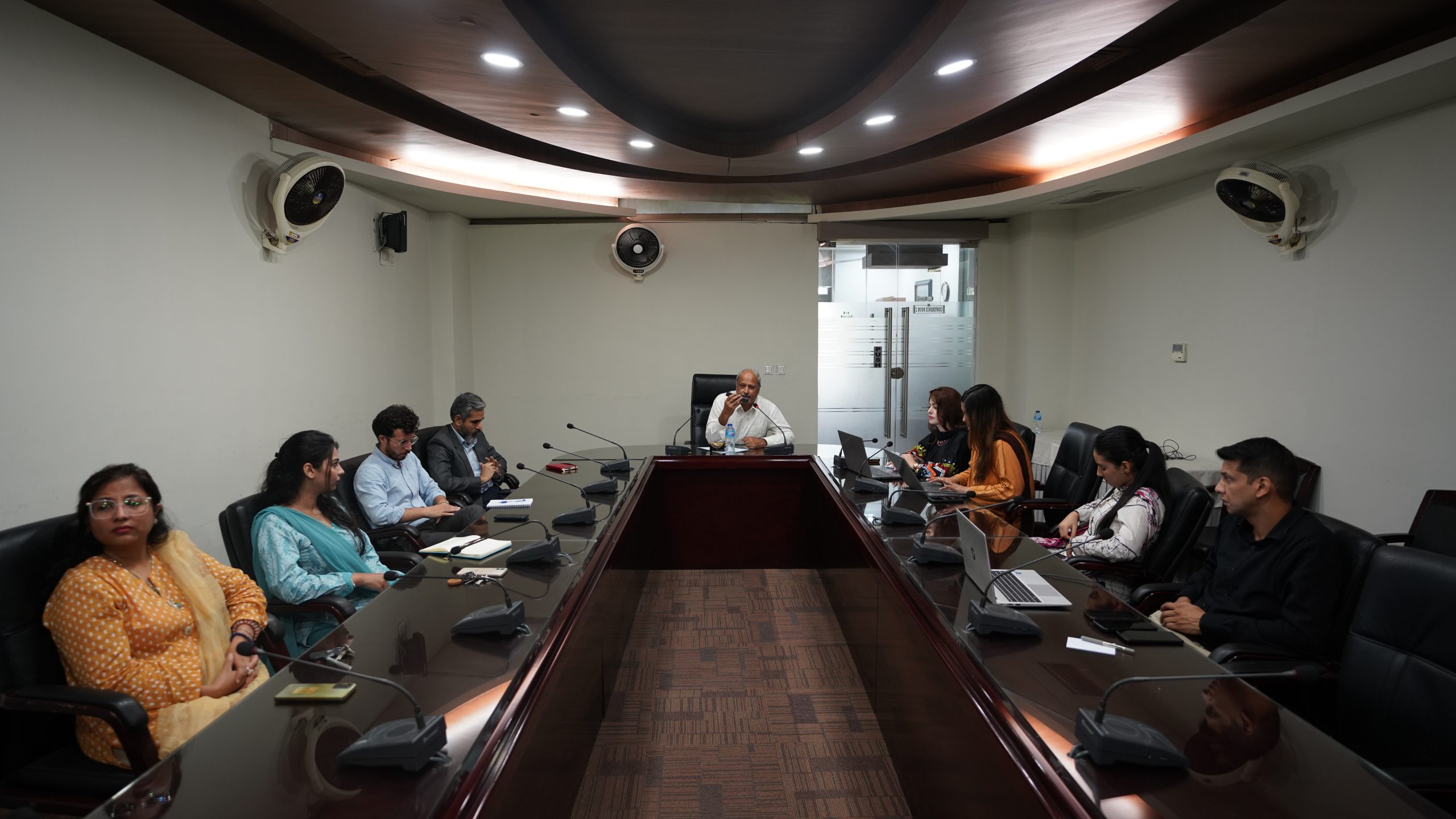India’s Continued Suppression of Kashmiris’ Fundamental Freedoms and Right of Self-Determination
-Share this story:
Islamabad, August 7, 2023 – NUST Institute of Policy Studies organized the keynote address by the former PM Azad Jammu and Kashmir Sardar Attique Ahmed Khan on “India’s Continued Suppression of Kashmiris’ Fundamental Freedoms and Right of Self-Determination” on August 7, 2023.
Sardar Attique Ahmed Khan expressed his unwavering solidarity with Kashmiri Muslims in Indian Illegally Occupied Jammu & Kashmir (IIOJK), who have been enduring the brunt of India’s brutal military occupation for over seven decades. The speaker expressed this earnest conviction that freedom from the Indian occupation is the destiny of Kashmiri Muslims in IIOJK.
Former PM AJK said that India’s state-sponsored oppression of Kashmiri Muslims in IIOJK has terribly intensified in the wake of the abrogation of Article 370 in August 2019. He highlighted that India’s reign of terror in IIOJK is driven by its genocidal bloodlust for Kashmiri Muslims that manifests in its routine violation of their human rights, their illegal state-sanctioned abductions, their extrajudicial killings, lawfare aimed at denying Kashmiri Muslims their legal rights and the due process of law, communication blackouts, and severe restriction of their freedom of movement. He remarked that India’s blook-soaked grip on IIOJK was a blatant negation of that country’s hollow claims to democracy and freedom.
The speaker highlighted that the repression of minorities in India, whether Muslims in Kashmir, Sikhs in Indian Punjab, or Christian Kukis in Manipur, is a perverse but natural consequence of the control that the extremist Hindutva mindset, embodied by RSS, has come to wield and the generous support it has managed to win, under Modi government, in the key sectors of the Indian state, society, and business. The speaker thought that for all practical purposes Hindutva and India have now become indistinguishable.
Sardar Attique further stressed that India’s internal turmoil of its own making presents an imminent threat to regional peace and stability. He said that if Muslims inside India have been the hapless targets of the Indian state’s repressive policies, it is only reasonable for the world to realize that Muslims living in India’s neighborhood are also at high risk from Hindutva’s anti-Muslim disorder.
A crucial aspect of the keynote centered around the ongoing demographic changes in IIOJK under the auspices of the Indian state, which had led to the controversial relocation and settlement of thousands of non-Kashmiris in IIOJK. Demographic changes in IIOJK, the speaker pointed out, are a clear violation of international law and must be raised forcefully at the relevant international forums.
Sardar Attique proposed that conflict resolution through international mediation, third-party involvement, and sustained meaningful dialogue between parties to the dispute is the way forward in South Asia.
The keynote also stressed that fast-paced economic growth and development in Pakistan, including AJK, would enhance Pakistan’s ability to meaningfully advance its position vis-à-vis Kashmir dispute.
The discussion following the keynote underscored the need for a concerted multidimensional program in Pakistan to unlock the immense potential of multi-domain public-private collaborations in the regional and global promotion of the just and peaceful resolution of the Kashmir dispute in line with UNSC resolutions.




